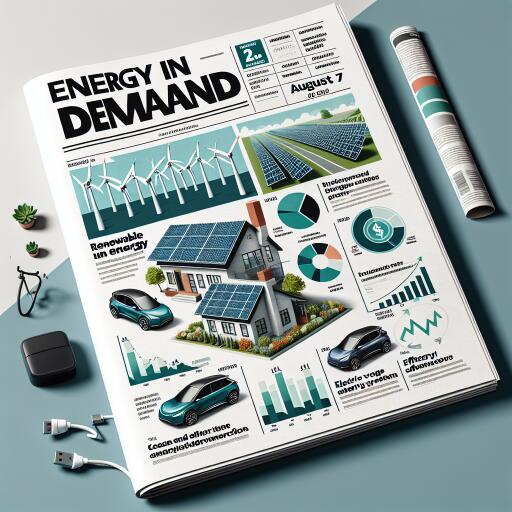
Energy in Demand News, August 4, 2024
In a monumental stride towards comprehending the future of our planet under the stress of climate change, the Intergovernmental Panel on Climate Change (IPCC) released the final segment of its Sixth Assessment Report (AR6) back in March 2023. An effort spanning eight years, the report from this globally revered scientific authority paints a sobering picture of the impacts of escalating greenhouse gas emissions. Dramatic narratives of homes in ruins, livelihoods wiped out, and communities torn apart were laid bare, alongside the looming, and potentially irreversible dangers if current paths are unaltered. Yet, within these cautionary tales, the IPCC also kindles hope, pointing to existing, cost-effective strategies for immediately reducing emissions, enhancing carbon removal, and fortifying resilience.
Fast forward to the present, the IPCC convened its 61st session, wrapping up on August 2, moving forward in its mission with significant achievements. Noteworthy progress includes consensus on pivotal reports concerning short-lived climate forcers and the intricate relationship between cities and climate change. The session underscored the importance of postponing strategic planning deliberations, including the timelines for the forthcoming Working Group reports, underscoring a commitment to rigorous and thoughtful scientific inquiry in the coming phases.
This progress emboldens a crucial message for global policymakers, urging them to internalize the insights and recommendations of the AR6. The rallying cry for action is more urgent than ever, especially in the context of the misinformation campaigns historically propagated by the fossil fuel industry. It’s a battle of narratives as much as it is a fight for the physical future of our planet.
Looking ahead to COP29 in Azerbaijan this November, there’s a vibrant discourse around embedding cultural heritage, arts, and creative sectors into the broader climate policy framework. It’s a reflection of a growing understanding that solutions to the climate crisis may well spring from the well of our shared cultures and creativity, echoing sentiments shared by commentators in recent years about the power of music and art to unite and galvanize global communities towards sustainable futures.
As the world grapples with these unprecedented challenges, the wisdom of voices past resurfaces with renewed relevance. Consider Eric Arthur Blair, more famously known as George Orwell, who poignantly observed the human tendency to ignore impending doom. His words, “He is fiddling while Rome is burning, and, unlike the enormous majority of people who do this, fiddling with his face toward the flames,” resonate deeply in today’s climate discourse, challenging us to confront the crisis head-on.
As we continue on this journey, insights, debates, and stories from the front lines of the zero-carbon energy transition are invaluable. They educate, inspire, and sometimes confront us with the stark realities of our time, igniting collective action towards a sustainable future. It’s a transition that asks of each of us to reflect, choose, and act with the wisdom and urgency this pivotal moment demands.
Engaging with these narratives, whether through dedicated forums or broader public discourse, is not just beneficial but essential. As we navigate the complexities of climate change and its myriad impacts, staying informed, curious, and critical ensures that the journey towards a sustainable future is as inclusive and informed as possible.





Leave a Reply